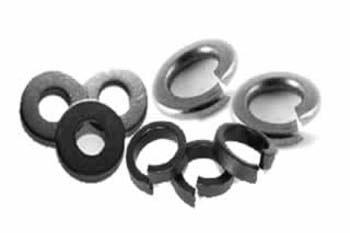Fasteners
Fasteners are the unsung heroes of the engineering and construction world, providing the essential connections that hold everything together. From bolts, nuts, screws, and washers to rivets, anchors, and pins, these small but mighty components play a crucial role in creating strong and reliable assemblies. In this comprehensive product description, we will explore the world of fasteners, their types, materials, applications, and the unparalleled value they bring to countless industries and everyday projects.
What are Fasteners?
Fasteners are mechanical devices designed to join or secure two or more components together. They create sturdy connections that resist shear, tension, and vibration, ensuring the integrity and longevity of structures and machinery. Fasteners come in a wide variety of shapes, sizes, and materials, each tailored to meet specific requirements in diverse applications.
Types of Fasteners
Fasteners encompass a vast range of types, each serving a unique purpose in various construction and assembly tasks. Some common types include:
- Bolts: Bolts are threaded fasteners with external threads that engage with nuts to create strong connections. They come in various head styles, such as hex head bolts, carriage bolts, and eye bolts, each suitable for specific applications.
- Nuts: Nuts are internally threaded fasteners used in combination with bolts to secure components together. Common types include hex nuts, lock nuts, wing nuts, and cap nuts.
- Screws: Screws have threaded shafts and are typically driven into pre-drilled holes to create a secure joint. They come in various head types, such as flat head screws, Phillips screws, and socket head screws.
- Washers: Washers are flat, thin plates with a hole in the center. They distribute the load and prevent damage to the connected materials when tightened with nuts or bolts. Types include flat washers, lock washers, and fender washers.
- Rivets: Rivets are permanent fasteners used to join two or more materials by deforming the end of the rivet once inserted. They are commonly used in aerospace, automotive, and construction industries.
- Anchors: Anchors are fasteners used in masonry and concrete to provide a secure point of attachment for screws, bolts, or hooks.
- Pins: Pins are cylindrical fasteners that either slide or fit tightly into holes to hold components in place temporarily or permanently.
Materials for Fasteners
Fasteners are available in various materials, each selected based on factors such as application requirements, environmental conditions, and corrosion resistance. Common materials include:
- Steel: Steel fasteners are widely used due to their strength and versatility. They can be coated with zinc, chrome, or other materials for added corrosion resistance.
- Stainless Steel: Stainless steel fasteners offer excellent corrosion resistance, making them suitable for outdoor and marine applications.
- Brass: Brass fasteners are corrosion-resistant and provide an aesthetically pleasing finish, making them popular in decorative applications.
- Aluminum: Aluminum fasteners are lightweight and corrosion-resistant, commonly used in aerospace and automotive industries.
- Titanium: Titanium fasteners are known for their high strength-to-weight ratio and corrosion resistance, making them ideal for aerospace and medical applications.
- Nylon: Nylon fasteners are lightweight, non-conductive, and resistant to chemicals, commonly used in electrical and electronic applications.
Fasteners Applications
Fasteners find applications in virtually every industry and project, including:
- Construction: Fasteners are essential in building construction, providing secure connections for beams, trusses, and structural elements.
- Manufacturing: In manufacturing processes, fasteners are used to assemble products, machinery, and equipment.
- Automotive: Fasteners play a vital role in assembling automotive components, such as engines, chassis, and interior trim.
- Aerospace: The aerospace industry relies on fasteners for aircraft assembly, where precision and reliability are paramount.
- Electronics: In electronic devices, fasteners secure circuit boards, cases, and components together.
- Furniture: Fasteners are used to assemble furniture, providing a sturdy and reliable structure.
- Marine: Marine applications require fasteners that can withstand corrosion from saltwater and harsh environmental conditions.
Fasteners Installation and Maintenance
Proper installation and maintenance are essential to ensure the effectiveness and longevity of fasteners. Here are some key considerations:
- Tightening Torque: Properly tightening fasteners to the recommended torque value is crucial to achieving the desired clamping force without damaging the materials.
- Thread Compatibility: Matching the thread size and pitch between bolts and nuts or screws and pre-drilled holes is critical to achieving a secure and reliable connection.
- Prevent Over-Tightening: Over-tightening fasteners can lead to thread stripping or material deformation, compromising the joint's strength and integrity.
- Corrosion Protection: In corrosive environments, choosing appropriate materials or using corrosion-resistant coatings helps prolong the fasteners' lifespan and maintain their performance.
- Regular Inspection: Periodically inspecting fasteners for signs of wear, corrosion, or loosening ensures early detection of issues and allows for timely maintenance.
- Replacement: When fasteners show signs of wear or damage, prompt replacement with compatible fasteners is essential to avoid compromising the overall structure's safety.
Conclusion
In conclusion, fasteners are the unsung heroes that hold our world together, providing secure connections in various industries and projects. Whether in construction, manufacturing, automotive, or electronics, fasteners play a critical role in ensuring the safety, reliability, and longevity of structures and equipment. By choosing the right type of fastener and material for specific applications, users can achieve optimal performance and enhance the overall efficiency of their projects. From the humble bolt and nut to the versatile screw and washer, fasteners are the bedrock of modern engineering, connecting and securing with precision.










